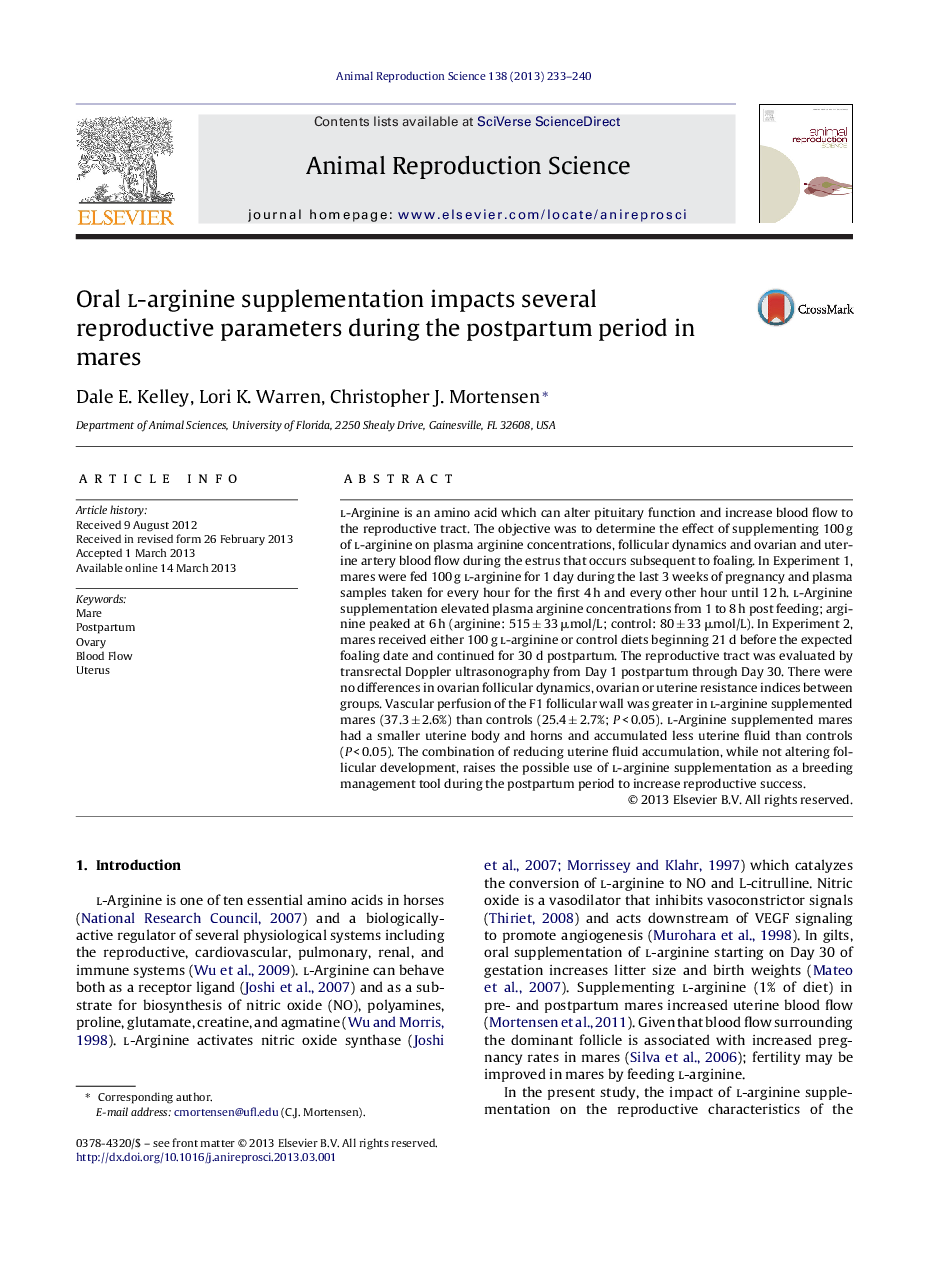| Article ID | Journal | Published Year | Pages | File Type |
|---|---|---|---|---|
| 8405157 | Animal Reproduction Science | 2013 | 8 Pages |
Abstract
l-Arginine is an amino acid which can alter pituitary function and increase blood flow to the reproductive tract. The objective was to determine the effect of supplementing 100 g of l-arginine on plasma arginine concentrations, follicular dynamics and ovarian and uterine artery blood flow during the estrus that occurs subsequent to foaling. In Experiment 1, mares were fed 100 g l-arginine for 1 day during the last 3 weeks of pregnancy and plasma samples taken for every hour for the first 4 h and every other hour until 12 h. l-Arginine supplementation elevated plasma arginine concentrations from 1 to 8 h post feeding; arginine peaked at 6 h (arginine: 515 ± 33 μmol/L; control: 80 ± 33 μmol/L). In Experiment 2, mares received either 100 g l-arginine or control diets beginning 21 d before the expected foaling date and continued for 30 d postpartum. The reproductive tract was evaluated by transrectal Doppler ultrasonography from Day 1 postpartum through Day 30. There were no differences in ovarian follicular dynamics, ovarian or uterine resistance indices between groups. Vascular perfusion of the F1 follicular wall was greater in l-arginine supplemented mares (37.3 ± 2.6%) than controls (25.4 ± 2.7%; P < 0.05). l-Arginine supplemented mares had a smaller uterine body and horns and accumulated less uterine fluid than controls (P < 0.05). The combination of reducing uterine fluid accumulation, while not altering follicular development, raises the possible use of l-arginine supplementation as a breeding management tool during the postpartum period to increase reproductive success.
Keywords
Related Topics
Life Sciences
Agricultural and Biological Sciences
Animal Science and Zoology
Authors
Dale E. Kelley, Lori K. Warren, Christopher J. Mortensen,
